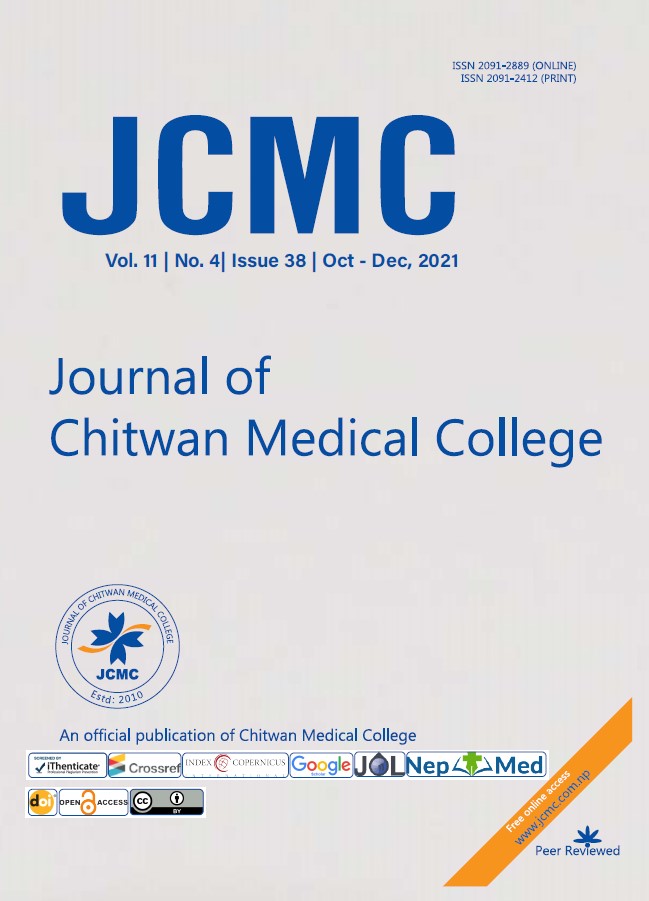E-learning during COVID-19 pandemic: attitude and problems faced by the nursing students
Keywords:
Attitude; COVID-19; E-learning; Pandemic; Problems.Abstract
Background: COVID-19 pandemic lockdown resulted in closure of educational institutes like schools, colleges, universities etc. worldwide. These closures are impacting over 60% of world’s student population. Online learning has become alternative for education in order to control risk of community transmission. The objective of study is to assess attitude and problem faced by nursing students towards E-learning education.
Methods: A web based descriptive cross-sectional study was conducted from 1st August to 31st October 2020 to assess attitude and problem faced with online class among 216 nursing students of Manipal college of Medical Sciences, Pokhara. Data was collected through self-administered questionnaire via online mode. Collected data was further analyzed using descriptive statistics SPSS 20.0 version.
Results: The finding revealed that more than half (50.9%) were below 20 years. Among 144 respondents, 105 (72.9%) were able to attend the class every day. More than half (57%) replied reason for not attending class every day is electricity cutoff. Regarding attitude of online classes, respondents had different feelings i.e. excitement (25%), bored (25%), fear(25%) and anger (25%) while attending online classes. Majority (82.4%) started to have musculoskeletal and other problems once online classes started.
Conclusions: Respondents have both positive and negative feelings while attaining online class. The negative feeling can be resolved by addressing electricity cutoff, giving break in between and more interaction in class. Regarding problems faced, sitting posture and positioning need to be address along with use of big screen device (laptop/computer) instead of mobile to sort out musculoskeletal and other problems.
Downloads
Downloads
Published
How to Cite
Issue
Section
License
Copyright (c) 2021 Dibya Sharma, Ramchandra Kafle, Sakun Singh

This work is licensed under a Creative Commons Attribution 4.0 International License.




